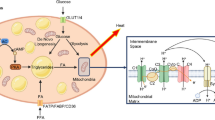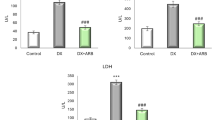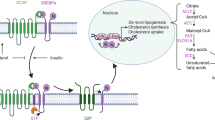Abstract
Purpose
Trastuzumab (TRZ) is believed to potentiate doxorubicin (DOX) cardiotoxicity, resulting in left ventricular dysfunction. There is some evidence that overweight could influence anticancer drug-induced cardiotoxicity, though no study has evaluated the impact of moderate overweight, induced by postnatal nutritional programming, on the cardiotoxic effects of DOX alone or in combination with TRZ.
Methods
Immediately after birth, litters of C57BL/6 mice were either maintained at 9 pups (normal litter, NL) or reduced to 3 (small litter, SL) in order to induce programming of ~15 % overweight through postnatal overfeeding. At 4 months, NL and SL mice received a single intra-peritoneal injection of either saline, DOX (6 mg/kg), TRZ (10 mg/kg) or both (DOX–TRZ). Transthoracic echocardiography was performed 24 h before as well as 10 and 20 days after treatments.
Results
Twenty days after DOX administration, systolic dysfunction was observed only in the overweight SL group, while NL mice group had a normal left ventricular ejection fraction. However, in the NL group, functional impairment appeared when TRZ was co-administered. Forty-eight hours after drug administration, gene expression of natriuretic peptides (ANP, BNP) appeared to be potentiated in DOX–TRZ mice of both the NL and SL group, whereas the expression of β-MHC increased significantly in overweight SL mice only.
Conclusions
In an acute model of DOX cardiotoxicity, moderately overweight adult mice were more sensitive to cardiac systolic impairment. Moreover, our results confirm the potentiating action of TRZ on DOX-induced cardiotoxicity in lean mice.




Similar content being viewed by others
References
Pommier Y, Leo E, Zhang H, Marchand C (2010) DNA topoisomerases and their poisoning by anticancer and antibacterial drugs. Chem Biol 17(5):421–433. doi:10.1016/j.chembiol.2010.04.012
Singal PK, Iliskovic N (1998) Doxorubicin-induced cardiomyopathy. N Engl J Med 339(13):900–905. doi:10.1056/NEJM199809243391307
Keefe DL (2001) Anthracycline-induced cardiomyopathy. Semin Oncol 28(4 Suppl 12):2–7
Shepard HM, Lewis GD, Sarup JC, Fendly BM, Maneval D, Mordenti J, Figari I, Kotts CE, Palladino MA Jr, Ullrich A et al (1991) Monoclonal antibody therapy of human cancer: taking the HER2 protooncogene to the clinic. J Clin Immunol 11(3):117–127
Slamon DJ, Leyland-Jones B, Shak S, Fuchs H, Paton V, Bajamonde A, Fleming T, Eiermann W, Wolter J, Pegram M, Baselga J, Norton L (2001) Use of chemotherapy plus a monoclonal antibody against HER2 for metastatic breast cancer that overexpresses HER2. N Engl J Med 344(11):783–792. doi:10.1056/NEJM200103153441101
Piccart-Gebhart MJ, Procter M, Leyland-Jones B, Goldhirsch A, Untch M, Smith I, Gianni L, Baselga J, Bell R, Jackisch C, Cameron D, Dowsett M, Barrios CH, Steger G, Huang CS, Andersson M, Inbar M, Lichinitser M, Lang I, Nitz U, Iwata H, Thomssen C, Lohrisch C, Suter TM, Ruschoff J, Suto T, Greatorex V, Ward C, Straehle C, McFadden E, Dolci MS, Gelber RD, Herceptin Adjuvant Trial Study T (2005) Trastuzumab after adjuvant chemotherapy in HER2-positive breast cancer. N Engl J Med 353 (16):1659–1672. doi:10.1056/NEJMoa052306
Romond EH, Perez EA, Bryant J, Suman VJ, Geyer CE Jr, Davidson NE, Tan-Chiu E, Martino S, Paik S, Kaufman PA, Swain SM, Pisansky TM, Fehrenbacher L, Kutteh LA, Vogel VG, Visscher DW, Yothers G, Jenkins RB, Brown AM, Dakhil SR, Mamounas EP, Lingle WL, Klein PM, Ingle JN, Wolmark N (2005) Trastuzumab plus adjuvant chemotherapy for operable HER2-positive breast cancer. N Engl J Med 353(16):1673–1684. doi:10.1056/NEJMoa052122
Dawood S, Broglio K, Buzdar AU, Hortobagyi GN, Giordano SH (2010) Prognosis of women with metastatic breast cancer by HER2 status and trastuzumab treatment: an institutional-based review. J Clin Oncol 28(1):92–98. doi:10.1200/JCO.2008.19.9844
Klein PM, Dybdal N (2003) Trastuzumab and cardiac dysfunction: update on preclinical studies. Semin Oncol 30(5 Suppl 16):49–53
Seidman A, Hudis C, Pierri MK, Shak S, Paton V, Ashby M, Murphy M, Stewart SJ, Keefe D (2002) Cardiac dysfunction in the trastuzumab clinical trials experience. J Clin Oncol 20(5):1215–1221
Perez EA, Rodeheffer R (2004) Clinical cardiac tolerability of trastuzumab. J Clin Oncol 22(2):322–329. doi:10.1200/JCO.2004.01.120
Jahanzeb M (2008) Adjuvant trastuzumab therapy for HER2-positive breast cancer. Clin Breast Cancer 8(4):324–333. doi:10.3816/CBC.2008.n.037
Fedele C, Riccio G, Coppola C, Barbieri A, Monti MG, Arra C, Tocchetti CG, D’Alessio G, Maurea N, De Lorenzo C (2012) Comparison of preclinical cardiotoxic effects of different ErbB2 inhibitors. Breast Cancer Res Treat 133(2):511–521. doi:10.1007/s10549-011-1783-9
Jassal DS, Han SY, Hans C, Sharma A, Fang T, Ahmadie R, Lytwyn M, Walker JR, Bhalla RS, Czarnecki A, Moussa T, Singal PK (2009) Utility of tissue Doppler and strain rate imaging in the early detection of trastuzumab and anthracycline mediated cardiomyopathy. J Am Soc Echocardiogr 22(4):418–424. doi:10.1016/j.echo.2009.01.016
Riccio G, Esposito G, Leoncini E, Contu R, Condorelli G, Chiariello M, Laccetti P, Hrelia S, D’Alessio G, De Lorenzo C (2009) Cardiotoxic effects, or lack thereof, of anti-ErbB2 immunoagents. FASEB J 23(9):3171–3178. doi:10.1096/fj.09-131383
Gordon LI, Burke MA, Singh AT, Prachand S, Lieberman ED, Sun L, Naik TJ, Prasad SV, Ardehali H (2009) Blockade of the erbB2 receptor induces cardiomyocyte death through mitochondrial and reactive oxygen species-dependent pathways. J Biol Chem 284(4):2080–2087. doi:10.1074/jbc.M804570200
Rochette L, Guenancia C, Gudjoncik A, Hachet O, Zeller M, Cottin Y, Vergely C (2015) Anthracyclines/trastuzumab: new aspects of cardiotoxicity and molecular mechanisms. Trends Pharmacol Sci 36(6):326–348. doi:10.1016/j.tips.2015.03.005
De Pergola G, Silvestris F (2013) Obesity as a major risk factor for cancer. J Obes 2013:291546. doi:10.1155/2013/291546
Zeller M, Steg PG, Ravisy J, Lorgis L, Laurent Y, Sicard P, Janin-Manificat L, Beer JC, Makki H, Lagrost AC, Rochette L, Cottin Y, Group RSW (2008) Relation between body mass index, waist circumference, and death after acute myocardial infarction. Circulation 118(5):482–490. doi:10.1161/CIRCULATIONAHA.107.753483
Rodvold KA, Rushing DA, Tewksbury DA (1988) Doxorubicin clearance in the obese. J Clin Oncol 6(8):1321–1327
Mitra MS, Donthamsetty S, White B, Mehendale HM (2008) High fat diet-fed obese rats are highly sensitive to doxorubicin-induced cardiotoxicity. Toxicol Appl Pharmacol 231(3):413–422. doi:10.1016/j.taap.2008.05.006
de Azambuja E, McCaskill-Stevens W, Francis P, Quinaux E, Crown JP, Vicente M, Giuliani R, Nordenskjold B, Gutierez J, Andersson M, Vila MM, Jakesz R, Demol J, Dewar J, Santoro A, Lluch A, Olsen S, Gelber RD, Di Leo A, Piccart-Gebhart M (2010) The effect of body mass index on overall and disease-free survival in node-positive breast cancer patients treated with docetaxel and doxorubicin-containing adjuvant chemotherapy: the experience of the BIG 02-98 trial. Breast Cancer Res Treat 119(1):145–153. doi:10.1007/s10549-009-0512-0
Ryu SY, Kim CB, Nam CM, Park JK, Kim KS, Park J, Yoo SY, Cho KS (2001) Is body mass index the prognostic factor in breast cancer? A meta-analysis. J Korean Med Sci 16(5):610–614
Habbout A, Li N, Rochette L, Vergely C (2013) Postnatal overfeeding in rodents by litter size reduction induces major short- and long-term pathophysiological consequences. J Nutr 143(5):553–562. doi:10.3945/jn.112.172825
Habbout A, Guenancia C, Lorin J, Rigal E, Fassot C, Rochette L, Vergely C (2013) Postnatal overfeeding causes early shifts in gene expression in the heart and long-term alterations in cardiometabolic and oxidative parameters. PLoS One 8(2):e56981. doi:10.1371/journal.pone.0056981
Habbout A, Delemasure S, Goirand F, Guilland JC, Chabod F, Sediki M, Rochette L, Vergely C (2012) Postnatal overfeeding in rats leads to moderate overweight and to cardiometabolic and oxidative alterations in adulthood. Biochimie 94(1):117–124. doi:10.1016/j.biochi.2011.09.023
Walker JR, Sharma A, Lytwyn M, Bohonis S, Thliveris J, Singal PK, Jassal DS (2011) The cardioprotective role of probucol against anthracycline and trastuzumab-mediated cardiotoxicity. J Am Soc Echocardiogr 24(6):699–705. doi:10.1016/j.echo.2011.01.018
Milano G, Raucci A, Scopece A, Daniele R, Guerrini U, Sironi L, Cardinale D, Capogrossi MC, Pompilio G (2014) Doxorubicin and trastuzumab regimen induces biventricular failure in mice. J Am Soc Echocardiogr 27(5):568–579. doi:10.1016/j.echo.2014.01.014
Guenancia C, Li N, Hachet O, Rigal E, Cottin Y, Dutartre P, Rochette L, Vergely C (2015) Paradoxically, iron overload does not potentiate doxorubicin-induced cardiotoxicity in vitro in cardiomyocytes and in vivo in mice. Toxicol Appl Pharmacol 284(2):152–162. doi:10.1016/j.taap.2015.02.015
Parekh N, Chandran U, Bandera EV (2012) Obesity in cancer survival. Annu Rev Nutr 32:311–342. doi:10.1146/annurev-nutr-071811-150713
Zeglinski M, Ludke A, Jassal DS, Singal PK (2011) Trastuzumab-induced cardiac dysfunction: a ‘dual-hit’. Exp Clin Cardiol 16(3):70–74
Acknowledgments
The authors thank Françoise Bechet for technical assistance and Mr. Philip Bastable for English revision of the manuscript.
Funding
This work was supported by grants from the French Ministry of Research, the Institut National de la Santé et de la Recherche Médicale (INSERM), the Société Française de Cardiologie (SFC), the Regional Council of Burgundy, the Association de Cardiologie de Bourgogne (ACB) and the French Government through a fellowship granted by the French Embassy in Egypt (Institut Français d’Egypte).
Author information
Authors and Affiliations
Corresponding author
Ethics declarations
Conflict of interest
On behalf of all authors, the corresponding author states that there is no conflict of interest including financial and personal relationships with other people or organizations that could inappropriately influence this work.
Rights and permissions
About this article
Cite this article
Guenancia, C., Hachet, O., Aboutabl, M. et al. Overweight in mice, induced by perinatal programming, exacerbates doxorubicin and trastuzumab cardiotoxicity. Cancer Chemother Pharmacol 77, 777–785 (2016). https://doi.org/10.1007/s00280-016-2995-9
Received:
Accepted:
Published:
Issue Date:
DOI: https://doi.org/10.1007/s00280-016-2995-9




